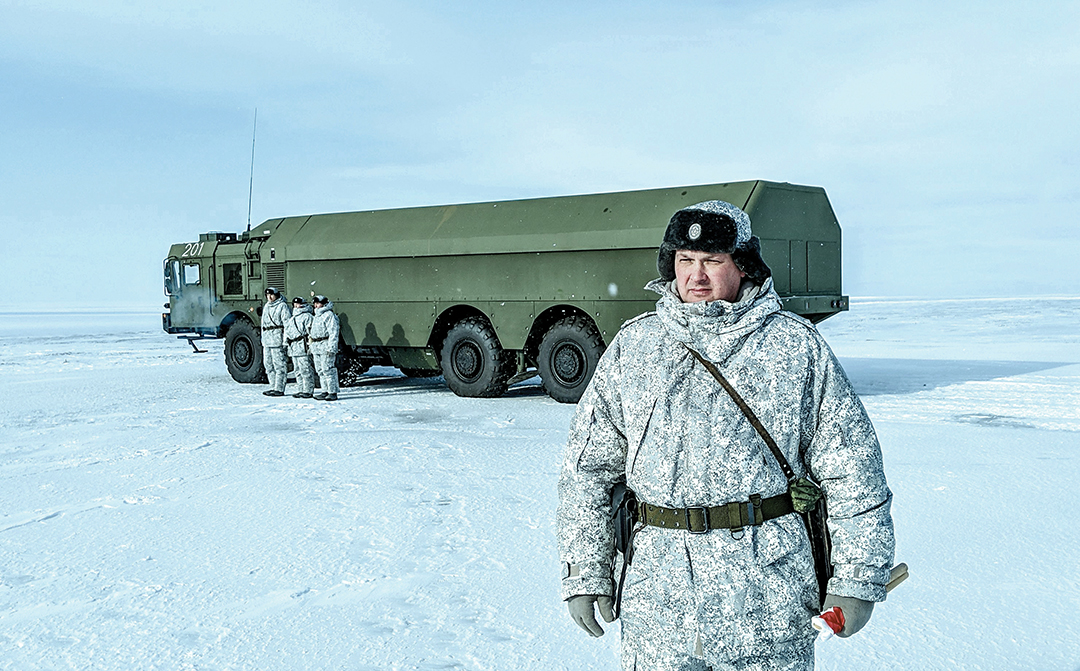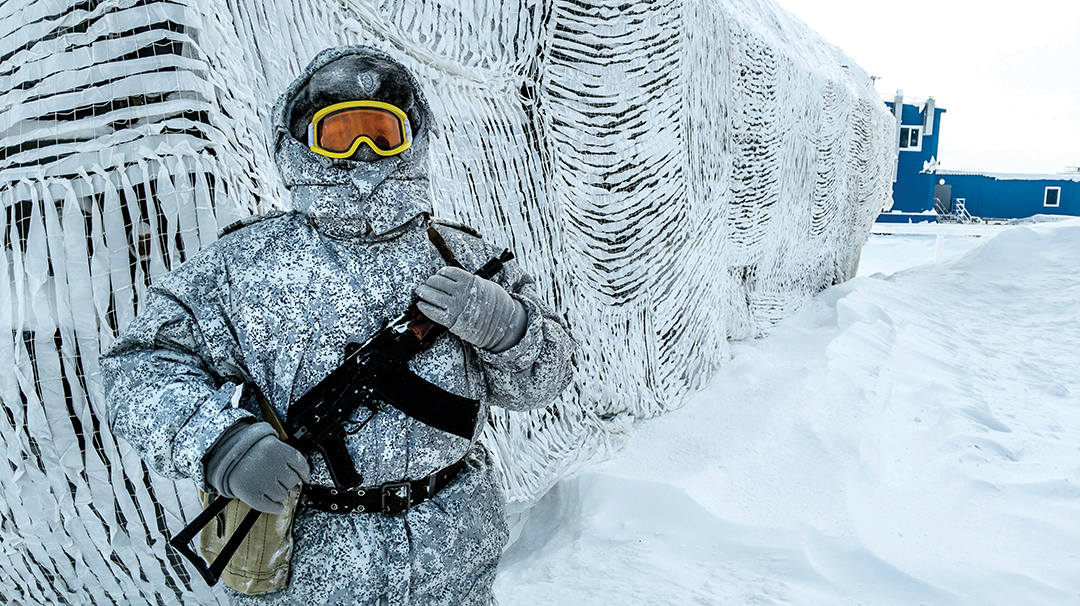Russia and People’s Republic of China demonstrate malign potential in Arctic
Troy J. Bouffard and Dr. Cameron D. Carlson
Russia’s top armed forces leader, Gen. Valery Gerasimov, authored an article in 2013 stating that the “role of non-military methods in achieving political and strategic goals has significantly surpassed the effectiveness of the power of weapons.” His words came after the failed use of information operations (InfoOps) during the Orange Revolution in Ukraine in 2004 and the Russo-Georgian War in 2008. Russia refocused its InfoOps and executed a stunningly successful demonstration in Crimea during annexation in 2014, illustrating that strategic implementation of information warfare under relatively controlled circumstances represents a powerful approach.
The People’s Republic of China (PRC) declared itself a “near-Arctic state” in the release of its Arctic strategy in 2018. While nearly a thousand miles from the region, the PRC seeks Arctic access and prominence through assertions such as economic development and climate research. Of Western concern is the growing Sino-Russian strategic cooperation that continues to deepen. For example, investments in and development of the Yamal and Arctic liquefied natural gas projects fuel the mutual economic interests of these great power competitors. Moreover, media and information coverage often strengthen adversarial legitimacy, providing the foundation to project power (and confusion). While the PRC may struggle to implement its 2018 Arctic strategy — especially the implied pursuit of increased access to the region — the information environment is wide open and ripe for Sino ascendancy.
In today’s hypercommunicative world, the opportunity to leverage InfoOps can emerge almost spontaneously. Even when the occasion involves a fast-moving target, adversarial disinformation can be devastatingly effective. Such impacts generally rely on two requirements: 1) the disinformation content must be somewhat plausible, and 2) the initial outreach must be robust. Deterring attacks is a daunting task. The political and domestic attitudes concerning adversaries must be effectively aligned and consistent with national security priorities. Otherwise, divergent beliefs and perspectives within society could provide a landscape for adversaries to exploit. Developing a whole-of-government as well as a whole-of-society threat understanding is fundamental to developing disinformation resilience if only to avoid undermining efforts to counter disinformation. We need only remember the post-9/11 efforts in leading the United States to collective awareness and action concerning the threats posed by violent extremist organizations to the homeland.

Arguably, the most effective way to deter disinformation attacks involves reducing susceptibility and access to intended targets. Education is key: Rather than rely on defense or response to attacks as part of deterrence, develop a resilient society and government that is especially capable of absorbing and recovering from disinformation. Assisting society to recognize and verify questionable information is critical if for no other reason than to minimize our role as self-defeating accomplices. This aspect of InfoOps, as part of a broader national security element, is a capability that Russia and the PRC acknowledge to be just as, if not more, important as achieving supremacy in great power competition — something directly related to the PRC’s One Belt, One Road goals or its Polar Silk Road policy.
As an emerging region of increased activity and vulnerability to information operations, the Arctic is primed for disinformation. The relative lack of Arctic understanding and attention for much of the U.S. allows for a more permissive environment from which malign interests could gain significant access and influence within our society. Other Arctic nations will also have to understand their information environments, especially as the circumpolar nations depend on each other for mutual interests. For both Russia and the PRC, the number of targets and methods of disinformation delivery works to their advantage, especially when objectives can focus on domestic as well as multinational vulnerabilities. For example, much of the world has little understanding of the intensity involving northern Indigenous interests and geopolitics, which is as real and complex as any other sphere of power.

The U.S. must adapt to the globally unprecedented targeting power of social media (capability) and this pervasive form of subliminal interventionism (intent). The chance occasions to conduct InfoOps — planned or otherwise — become the other task as part of a timing game (opportunity), and thereby fulfilling the basic threat formula. Broadly, we can expect Russian InfoOps in the Arctic to involve geopolitical objectives while the PRC will likely focus on geoeconomic goals. However, all (overlapping) security sectors are exploitable, including political, military, economic, social and environmental. Western security concerns over Russian and Chinese goals involving the Arctic currently strive to delineate between real and perceived threats, which 1) remain potentially vulnerable to adversarial disinformation efforts, and 2) represent prospects to coordinate strategic and operational security-related miscalculations.
Militarily, the Arctic represents a traditional and new-generation threat to North America and the U.S. homeland. The information domain must seriously factor into defense thinking. Deterrence is considerably more difficult, simply because ideas cannot be killed and populations represent millions of participating information combatants, unwitting or otherwise. While the Arctic remains a remarkable region of cooperation, Russia and the PRC will look to exploit the increasingly competitive realm of the circumpolar North in support of their global ambitions. To that end, vigilance remains vital. The U.S. government and society need to recognize the current level and usefulness of Arctic regional stability and leverage whatever time remains to prepare strategies against the malign disinformation endeavors of Russia and the PRC.
Troy J. Bouffard is a faculty member at the University of Alaska Fairbanks and is a defense contractor with Alaskan Command, a joint subordinate unified command of U.S. Northern Command. He is also a research fellow at the Centre for Defence and Security Studies at the University of Manitoba. Dr. Cameron D. Carlson is program director for the homeland security and emergency management programs and is also the director of the Center for Arctic Security and Resilience at the University of Alaska Fairbanks.

